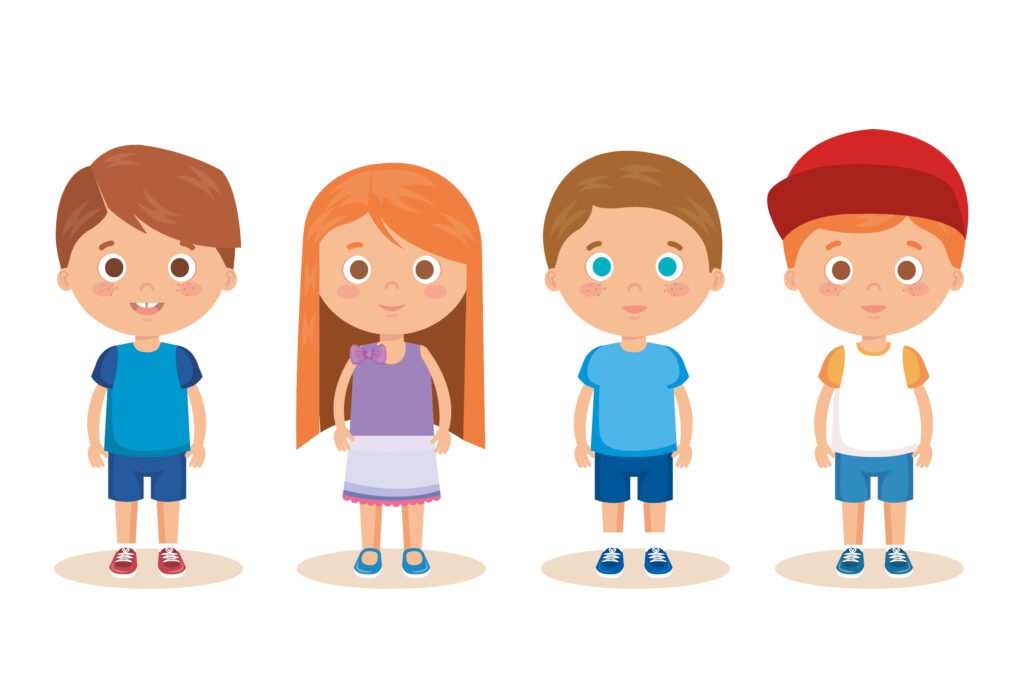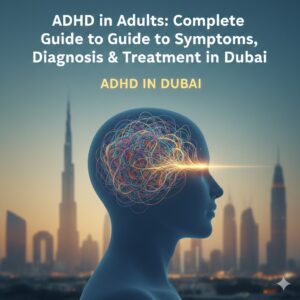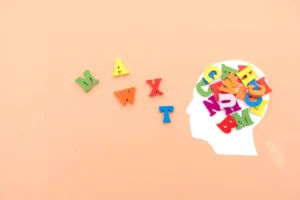ADHD in Girls vs. Boys: Why Symptoms Often Look Different
This article has been researched and written by Sara Caroppo. AI has not been used in producing this article.
When people think of ADHD, they often picture a young boy bouncing off the walls, constantly moving, talking out of turn, or getting into trouble at school. And while that can be one version of ADHD, it’s far from the whole story, especially when it comes to girls.
ADHD doesn’t look the same in every child. In fact, it often shows up quite differently in girls than in boys. That difference can lead to girls being overlooked, misunderstood, or even misdiagnosed. As a result, many go through childhood—and even into adulthood—without the support they need.
Let’s talk about why that happens, what signs to look for, and how parents can help their kids thrive.
What ADHD Looks Like in Boys
In general, boys are more likely to be diagnosed with ADHD, and at a younger age. That’s often because ADHD symptoms in boys tend to be more outward and disruptive. They might:
- Fidget constantly or struggle to sit still
- Interrupt conversations or talk excessively
- Act impulsively without thinking things through
- Struggle to wait their turn or follow directions
- Get frustrated or overwhelmed quickly
- Have trouble staying focused on tasks
These behaviors usually stand out at school or at home, which means boys are more likely to get flagged for testing early on, and receive support sooner.
How It Can Look Different in Girls
Girls with ADHD often don’t fit that “hyperactive” mold. They may not be loud or impulsive. Instead, their symptoms tend to be more subtle.
They might:
- Drift off during conversations or class
- Seems forgetful or disorganized
- Lose things frequently
- Take longer to complete homework
- Be sensitive to criticism
- Get overwhelmed easily
Instead of being seen as “hyper,” these girls are often labeled as daydreamers, anxious, lazy, or shy. But what’s really going on is that their brains are wired differently, and they’re doing their best to manage it, often without anyone realizing they’re struggling.
Why So Many Girls Go Undiagnosed
The truth is, we’ve spent decades studying ADHD through the lens of how it shows up in boys. Girls haven’t been the focus of that research until more recently. That means their symptoms are often misunderstood, or completely misdiagnosed. Girls are also socialized to behave a certain way. They’re often expected to be quiet, helpful, and compliant. So even when they’re struggling internally, they might work extra hard to hide it. And that “masking” can come at a cost.
The Emotional Impact of Being Overlooked
When a girl has undiagnosed ADHD, she often feels like she’s constantly falling short, no matter how hard she tries. She might feel scattered, forgetful, or frustrated with herself. She may notice her peers seem to manage things with ease while she’s drowning in small tasks.
Over time, that can lead to:
- Low self-esteem
- Anxiety or depression
- Perfectionism
- Emotional burnout
She may start to believe something is “wrong” with her when in reality, she just hasn’t been given the tools and understanding she needs.

So What Can Parents Do?
If you’ve noticed signs that your child, girl or boy, is struggling with focus, organization, or emotional regulation, it’s worth exploring further. Early support can make a big difference. Here’s where to start:
1. Pay Attention to the Quiet Signs
ADHD isn’t always loud or disruptive. Trouble staying organized, zoning out, and emotional sensitivity are just as important to notice as hyperactivity.
2. Talk to Teachers
Teachers often have a front-row seat to how your child behaves in structured environments. Ask them what they’re noticing—not just academically, but socially and emotionally, too.
3. Consider a Professional Evaluation
A licensed therapist, psychologist, or pediatrician can do an ADHD assessment of your child’s strengths and challenges and determine whether ADHD is part of the picture.
4. Support Without Judgment
Kids with ADHD often hear what they’re doing wrong more than what they’re doing right. They need encouragement, understanding, and space to grow without shame.
5. Look Into Accommodations
If your child is diagnosed, things like extra time on assignments, organizational tools, or sensory breaks can help them feel more capable and confident.
Every Brain Works Differently
Just because ADHD doesn’t show up the same way in every child doesn’t mean one experience is more valid than another. While girls are more likely to show quieter, internal symptoms, some girls do present with the classic hyperactive traits often seen in boys, and they deserve to be taken just as seriously.
At the same time, not all boys are loud or disruptive. Some internalize their struggles, experience deep frustration, or quietly battle anxiety and low self-worth, symptoms that are just as real but easier to overlook.
No matter how ADHD shows up, each child’s experience is valid. They all deserve understanding, compassion, and the right support to thrive.
Support that Sees the Whole Child
At ClearMinds Counseling, we work with families to recognize the unique ways ADHD can show up, and help each child find their strengths, build confidence, and feel understood.
If you think your child might be dealing with ADHD, or if something just feels “off,” you don’t have to figure it out alone. Reach out. At ClearMinds Counseling, we’re here to help you navigate the next step with compassion and clarity.
ADHD in Adults: Complete Guide to Symptoms, Diagnosis & Treatment in Dubai
This article has been researched and written by Mariam. AI has not been used in producing this article. For many adults living in Dubai, the struggle is familiar: missed deadlines, a desk that never stays organized, conversations you tuned out halfway through, and an inner voice that has spent decades whispering that you are simply…
Mental Health During Ramadan: 7 Tips for Emotional Wellbeing
This article has been researched and written by Mariam. AI has not been used in producing this article. Ramadan is a month of deep spiritual renewal, gratitude, and community. But for many Muslim residents and expats across Dubai and the UAE, it can also bring unexpected emotional challenges. Sleep disruption, fatigue, heightened anxiety during Ramadan,…
Famous People with Dyslexia
Representation matters especially when there is a stigma around dyslexia and learning disabilities in general …
Third Culture Kids: Growing Strong Roots in a Mobile World
In a city like Dubai, it is not unusual to meet a child who has already lived in three countries, attended four different …
What Can I Do If Someone Is Bullying Me at School?
If someone keeps being mean to you, teasing you, hurting you, or leaving you out on purpose, this is called bullying…
Micro-Recovery: TraumaInformed Coping Tools Adults Can Use in Daily Life
Our nervous system is under constant pressure and stimulation. When you add the layer of …







